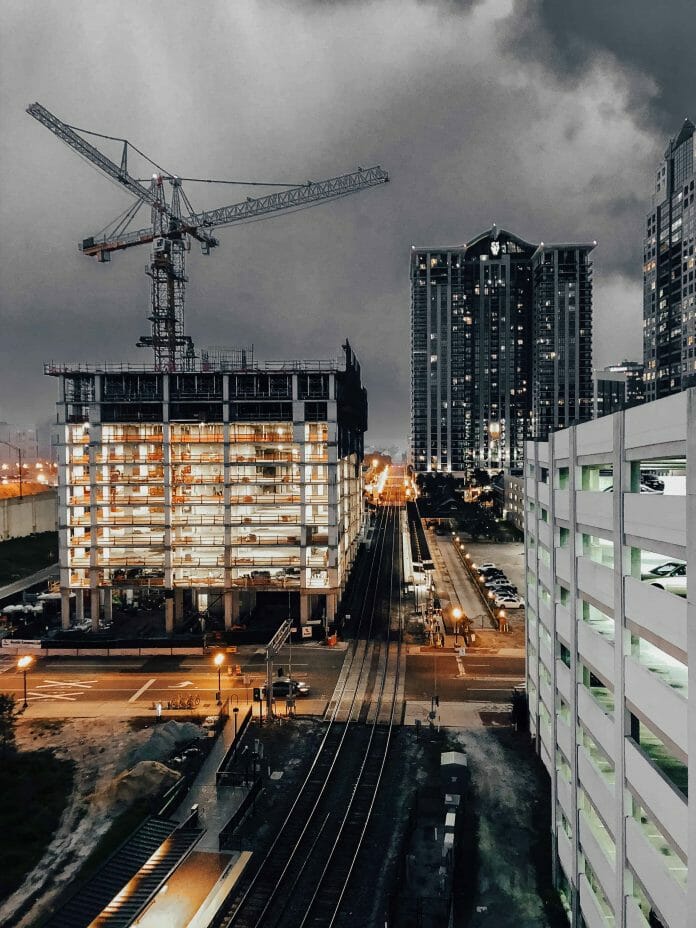Innovative technologies like artificial intelligence (AI), virtual reality (VR), and 3D printing aren’t just useful for consumer-facing products and services – they’re also creating substantial impact on businesses and industries as a whole. The rate of digital disruption is escalating in almost every industry.
However, despite being one of the fastest-growing industries globally and also infamously known for cost and time overruns, construction has been one of the last in digitisation.
Global analytical firm Raconteur reveals that adoption of technologies will result in major impact on the industry’s processes, bottom line and output. We would be able to build stronger, taller, and more energy efficient structures. Technology will allow us to make construction sites safer and workers more efficient, enabling us to further increase productivity, improve collaboration, and tackle more complex projects.
Construction industry: where do we stand?
The global construction industry is expected to produce output worth USD12.7 trillion in 2022, a significant increase from USD10.6 trillion in 2017. The construction industry has played a huge role in increasing Malaysia’s economic development and realising the aspirations of our people as well as meeting basic needs, on top of contributing 4.5 percent in 2018’s GDP.
To stay in line with current demands and global construction trends, the government is actively pushing for adoption of technology within the industry to enable greater growth and improve productivity and efficiencies. Several mega-infrastructure projects are expected to kick off following the Budget 2020 announcement. The construction industry is set to receive RM297 billion from the government for the financial fiscal year, indicating opportunities for more growth and development in the sector. It is encouraging that our government has placed importance to infrastructure development and improvements, despite measures to tighten budget spends.
However, despite this promising outlook, the construction industry has gained only one percent of productivity in the last 20 years due to lack of digitisation. While we are continuously made aware of newer technologies and its limitless impact to our industry, acceptance within the industry is relatively low. Even with encouragement by the Construction Industry Development Board Malaysia (CIDB) for adoption of construction technologies, only a handful of companies implements the usage of Building Information Modelling (BIM).
The rise of smart building and cities
With smart cities on the rise, government is working on ensuring that cities are able to provide decent quality of life to its citizens, a clean and sustainable environment and application of ‘Smart’ solutions. Smart cities represent an ongoing evolution, which means as technology evolves, so too does the potential to transform our urban environment.
The smart-cities market will continue to grow significantly through 2023 – from roughly USD308 billion in 2018 to roughly USD717.2 billion by 2023. As this trend continues, construction companies will be tasked with building smart cities – everything from the skyscrapers to the roads and the transportation systems. This high-tech urban environment necessitates a new set of requirements on projects – and many construction companies are already responding.
The government has shown full commitment in developing and transforming existing cities to become smarter, safer and more sustainable by introducing the Malaysia Smart City Framework. This is a step in the right direction in driving efficiencies through automation and improving connectivity with Internet of Things (IoT). While Smart Cities appeal to the changing demands of our communities, we also need to be mindful of the changing economics of infrastructure that requires the right combination of traditional construction and smart solutions.
Collective effort by industry players, regulators and government necessary for digitisation
Malaysia has one of the most digitally connected societies in the world, but more work is needed to overcome several key challenges and rise above the pack. Emerging technologies such as AI and IoT across industry sectors are important to take Malaysia into the next level. Against this backdrop, the Malaysian government has embarked on a slew of initiatives to spur the digital economy, such as promoting technology adoption among businesses and encouraging digital entrepreneurship.
To further enable efficient development, more sectors should be included within the framework and not limiting or prioritising only technology or service providers and city managers or state governments. Strategic level of planning will require all parties within a city ecosystem to work together, especially the involvement of construction players as early in the planning stage as possible.
While we are appreciative of existing incentives by the government to encourage adoption of tech but currently, these are limited to certain sectors. We would like the government to consider extending them to other industries including construction, targeting at players who are looking beyond existing technologies like robotics and AI. Government can also consider allocations to relevant agencies to develop low-risk test bed opportunities for local players – to further enable exploration of technologies and innovative solutions for building and construction.
Digitising the construction industry is no easy feat. Hence why we are fully committed to teaming up with the government and key industry players in taking progressive steps on how we can further transform how we better deliver our projects. As part of our bold journey, we have a sense of duty in promoting economic growth. We will continue to advocate the need to adopt and infuse the right level of innovation and technologies across the ecosystem to achieve the desired impact to the industry.
Article contributed by Dato’ Faris Yahaya, CEO of ORANGEBEAM









